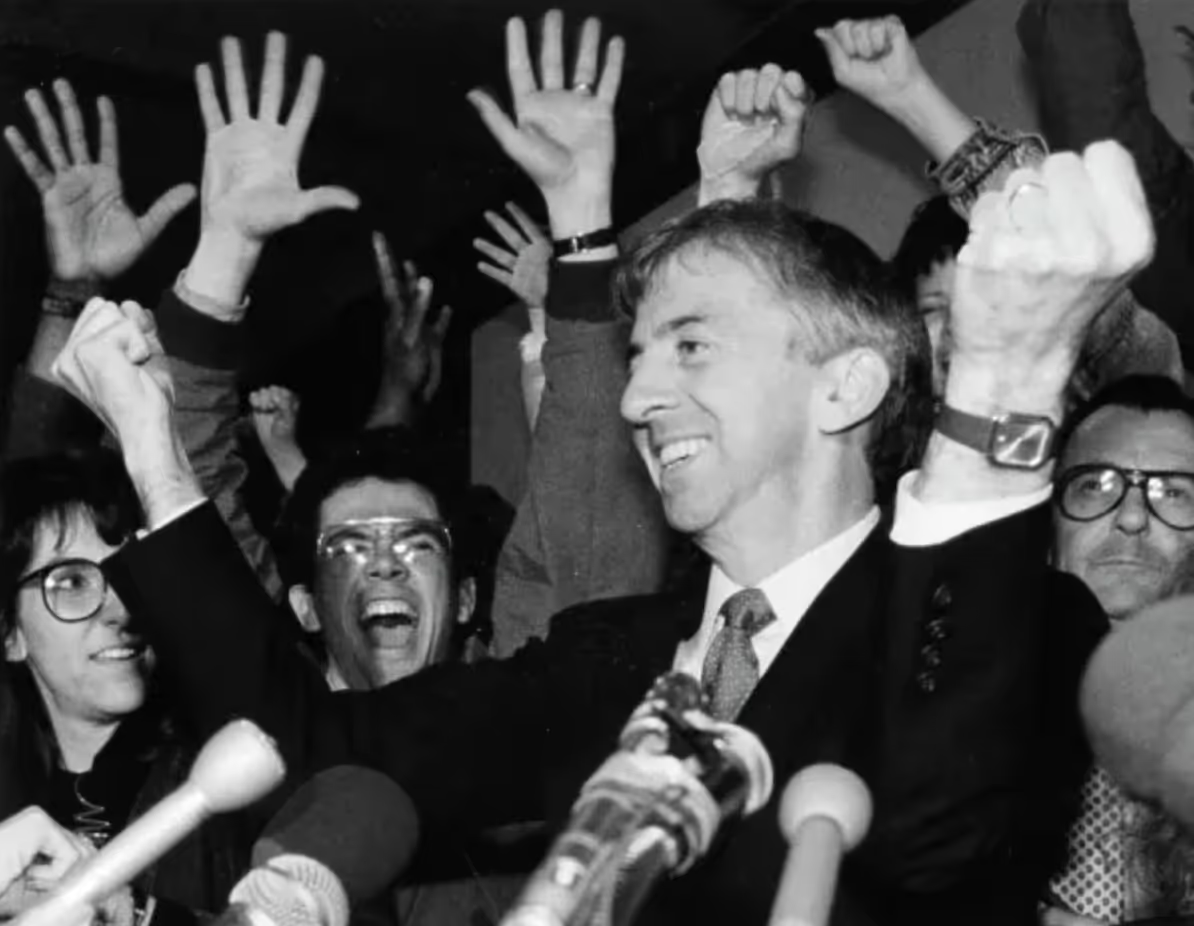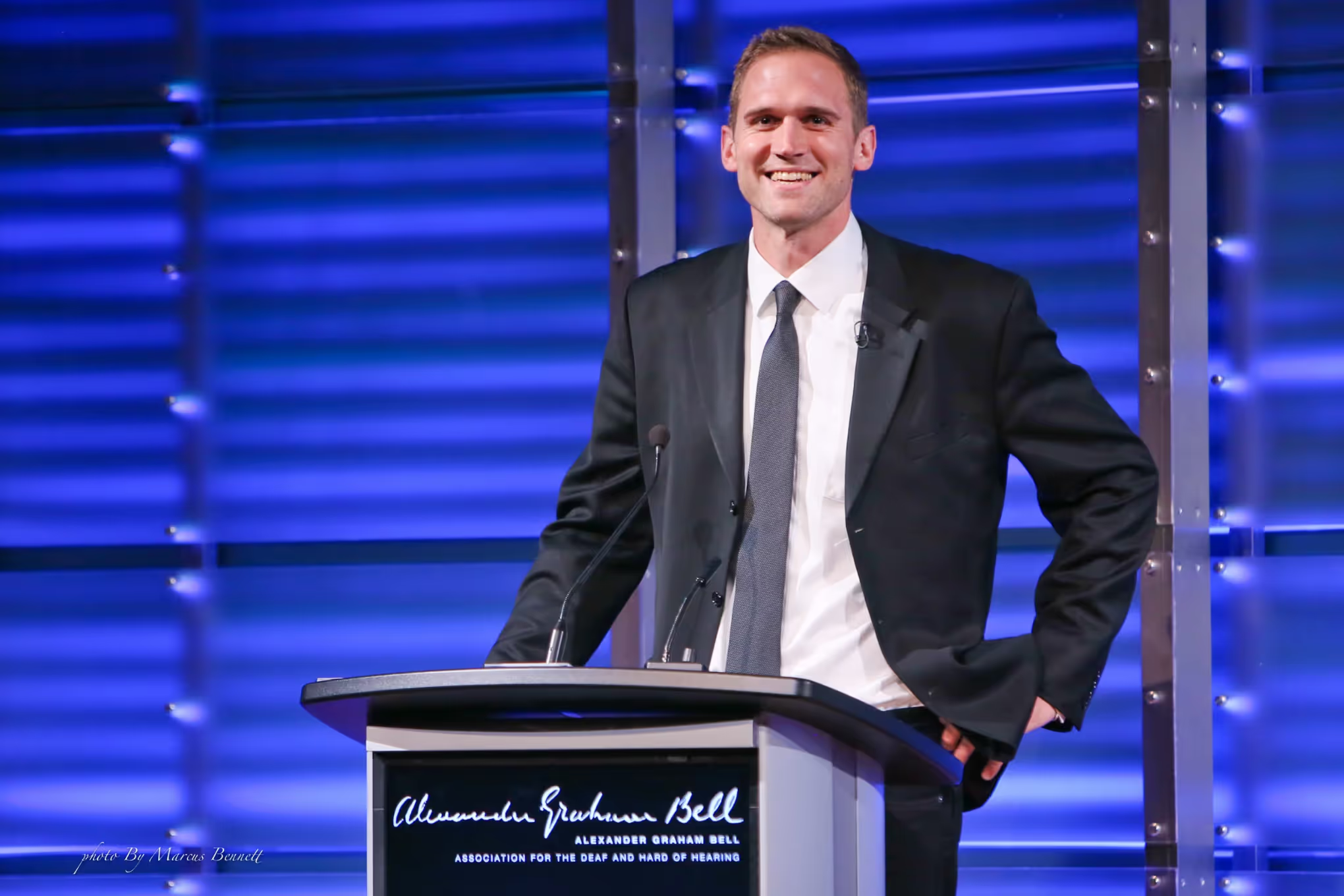Progress is never automatic. It takes individuals with vision — people who confront challenges, dismantle barriers, and inspire others to act. Within the D/deaf and hard-of-hearing community, leaders in education, law, media, and sports have advanced accessibility while reshaping how society imagines inclusion.
This article celebrates trailblazers whose influence extends beyond personal success. Their stories light the way toward a more equitable and welcoming future.
Representation is more than visibility; it is possibility. When D/deaf and hard-of-hearing leaders step into classrooms, command stages, or compete in arenas, they do more than succeed in their fields. They expand the boundaries of what others believe is possible, proving that leadership and talent know no limits.
In this community, leadership is measured less by titles and more by impact:
When D/deaf leaders stand in public spaces, from boardrooms to basketball courts, they send a powerful message: Deaf people belong everywhere.

“Deaf people can do anything — except hear.”
—I. King Jordan
Background
Born in Pennsylvania, Jordan became profoundly deaf after a motorcycle accident during his U.S. Navy service. He later earned a degree from Gallaudet University and a Ph.D. in psychology from the University of Tennessee. His experience as a deaf student deeply shaped his commitment to advocacy in higher education.
Breakthrough
In 1988, the Deaf President Now protest transformed higher education when students demanded authentic representation at Gallaudet University. Jordan answered that call, becoming the institution’s first deaf president. It was a watershed moment that resonated far beyond the campus gates.
Impact and Legacy
Jordan’s leadership reshaped perceptions of deaf capability and opened new pathways for representation:
His groundbreaking career continues to inspire deaf leaders across academia, government, and public life.
Quick Fact: She was awarded the Skadden Fellowship after law school to work with the National Association of the Deaf Law & Advocacy Center.
Background
Born in Jamaica, Claudia Gordon lost her hearing as a child and immigrated to the United States soon after. She faced the dual weight of racial and disability discrimination, but these obstacles fueled her resolve to fight for justice. She pursued law with a clear purpose, eventually graduating with honors from American University’s Washington College of Law, the school’s first deaf graduate.
Breakthrough
Gordon became the first deaf Black woman attorney in the United States, a milestone that gave her a platform to challenge inequities and open doors for others historically excluded from the legal profession.
Impact and Legacy
Her influence has reshaped both policy and culture:
Today, Gordon expands her advocacy across Jamaica and the Caribbean while serving as a role model for deaf women and lawyers of color.
Quick Fact: Joel Barish has traveled to more than 100 countries documenting Deaf culture.
Background
As a Deaf entrepreneur, Joel Barish recognized the absence of global platforms celebrating Deaf identity. Determined to change that, he co-founded DeafNation, a space created to unite the community through expos, cultural events, and original media.
Breakthrough
Under his leadership, DeafNation grew into an international hub that reaches millions each year, giving visibility to Deaf-owned businesses and amplifying Deaf culture worldwide.
Impact and Legacy
Barish has built cultural bridges across continents:
His storytelling inspires Deaf travelers and strengthens cross-cultural understanding, proving that accessibility is possible anywhere in the world.
“Silence is the last thing the world will ever hear from me.”
—Marlee Matlin
Background
Born Deaf, Marlee Matlin pursued acting as both a passion and a way to challenge stereotypes. Her love for performance began in a children’s theater group, where she first discovered the power of storytelling to connect audiences across differences.
Breakthrough
In 1986, Matlin made Hollywood history as the first Deaf performer to win an Academy Award for her role in Children of a Lesser God. Her win was more than a personal triumph; it marked a cultural turning point that proved Deaf actors belonged in mainstream cinema. She went on to star in acclaimed series such as The West Wing, Seinfield, and Switched at Birth.
Impact and Legacy
Her influence has extended from Hollywood to global advocacy:
Matlin’s enduring career shows that Deaf performers can achieve not only acclaim but also lasting cultural impact.

Quick Fact: During his senior year at Weber State, Allred averaged 17.7 points and 12 rebounds per game, leading his team in both categories.
Background
Born with 75–80% hearing loss due to Rh complications, Lance Allred grew up navigating communication barriers both on and off the basketball court. These experiences shaped his resilience and fueled his drive to pursue professional athletics.
Breakthrough
In 2008, Allred made history as the first legally deaf player in the NBA, suiting up with the Cleveland Cavaliers. His debut was more than symbolic; it proved that accessibility could open doors to the highest levels of competition.
Impact and Legacy
Allred also authored Longshot and The New Alpha Male, blending personal experience with lessons on resilience and authentic leadership.
Quick Fact: Catchings is a four-time Olympic gold medalist and ESPN’s first Humanitarian Award recipient.
Background
Born with hearing loss, Tamika Catchings wore hearing aids from an early age. Rather than viewing her deaf identity as a limitation, she turned it into motivation, building one of the most decorated careers in women’s basketball.
Breakthrough
Her 15-year career with the Indiana Fever featured:
Impact and Legacy
Catchings’ legacy stretches far beyond her athletic achievements:
Today, she continues to lead as a mentor, speaker, and business owner.
Though their fields differ, these trailblazers share a common thread: resilience. Whether in classrooms, courtrooms, studios, or arenas, they transformed barriers into stepping stones and broadened opportunities for the next generation.
Representation thrives with support. Here are ways to contribute:
Every action, no matter how small, helps strengthen inclusion.
Who was the first deaf president of Gallaudet University?
I. King Jordan became the first deaf president of Gallaudet University in 1988 after the Deaf President Now movement, demonstrating the power of collective advocacy.
What is DeafNation, and why does it matter?
DeafNation is a global platform connecting Deaf communities through expos and media. It raises awareness, supports Deaf-owned businesses, and celebrates Deaf culture worldwide.
How did Lance Allred inspire audiences beyond basketball?
Allred made history as the first legally deaf NBA player. Today, he motivates audiences as a speaker and author, sharing lessons on resilience and leadership.
Who was the first deaf Black woman attorney in the U.S.?
Claudia Gordon. She broke barriers in law and government, shaping disability rights and inspiring future advocates.
What challenges still face the D/deaf and hard-of-hearing community?
Accessibility gaps persist in education, healthcare, and workplaces, along with underrepresentation in leadership.
Why is representation important in the D/deaf and hard-of-hearing community?
Representation validates identity, and it inspires possibility. When a D/deaf child sees Marlee Matlin win an Academy Award or Tamika Catchings hoist an Olympic medal, they see not just success but a reflection of their own potential.
How can I support D/deaf and hard-of-hearing leaders?
Attend their events, amplify their voices, support accessible media, volunteer, donate, and learn sign language. Each action moves the needle toward inclusion.
InnoCaption provides real-time captioning technology making phone calls easy and accessible for the deaf and hard of hearing community. Offered at no cost to individuals with hearing loss because we are certified by the FCC. InnoCaption is the only mobile app that offers real-time captioning of phone calls through live stenographers and automated speech recognition software. The choice is yours.